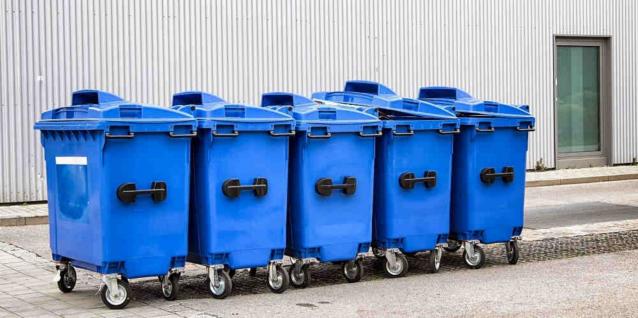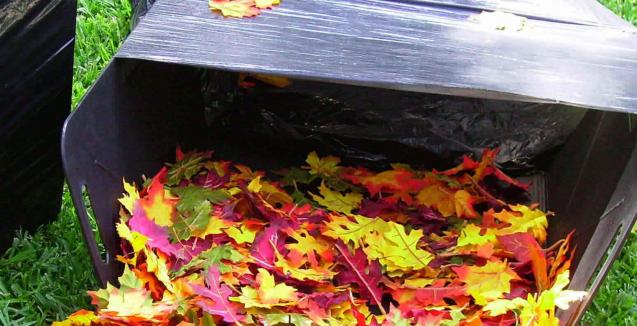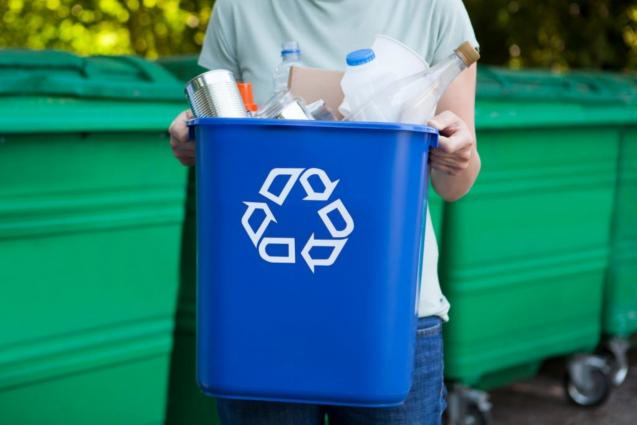
Guide To DIY Rubbish Removal
To avoid the stress and rubbish your DIY projects come with, it is essential to find suitable ways to eliminate the waste. With the help of our friends from Pro Rubbish Removal Brisbane we have put together the top tips for DIY rubbish removal to give you more time and comfort to do the job pretty well.
Types of Rubbish
In Australia, waste production is about 74 million tonnes per year, which is one of the highest in the world. Of the total, only 60% gets recycled, which leaves the country with a lot of work.
There are plenty of rubbish types that get generated from the everyday activities of sectors in the country. Below, we discuss significant waste types that account for the large volume of rubbish in the country.
General Rubbish
General rubbish involves things that can't be recycled and get disposed of in a landfill. You will find most of the rubbish thrown into a general waste bin classified as general rubbish. Its source varies depending on the tasks we engage in at our home or workplaces.
The different types of general waste include:
- Plastics – Most plastics are non-recyclable and therefore end up in a general waste bin.
- Metals – Anything ranging from a whole punch to pans and pots includes metals classified as general rubbish.
- Ceramics – They include ornaments, mugs, and pottery.
- Glass – Includes pieces of window and glasses.
- Packaging materials – They include jiffy bags, coated wrapping papers, bubble wrap, and padded envelopes. Besides that, any polystyrene packaging falls in this type of rubbish
- Cleaning materials – For instance, wet wipes, paper towels, cleaning cloths, and any other non-hazardous cleaning materials.
- Others include bagged vacuum dust, wallpaper, snack wrappers, and much more.
Green waste is organic waste that can be recycled and used as compost or mulch. It includes things like garden clippings, leaves, and fruit and vegetable scraps. Some types of green waste, such as carpet cleaning products, can also be used to make energy. Green waste is a great way to reduce your environmental impact and help your garden thrive. Plus, it's free! So why not give it a try?
Unwanted Furniture
In every home you visit, you won't miss finding a piece of unwanted furniture. The reason is that furniture waste is often bulky and heavy, making it difficult to dispose of, most likely if multiple furniture pieces need disposal. It included broken chairs, tables, cupboards, beds, and many others.
Household Appliances
Household appliances are yet another common type of rubbish you can get in many homes in Australia. You'll find them quite bulky and some big, making them difficult or expensive to remove. Examples of rubbish from damaged or non-functioning household appliances include:
- Coffee maker
- Blender
- Mixer
- Microwave
- Fridge
- Pressure cooker
- Light bulb
- Kettle
- Vacuum cleaner
- Air conditioner
- Dishwasher, and so many others
Computer electrical waste is a type of rubbish resulting mainly from electrical gadgets such as DVDs, computers, TVs, printers, music players, telephones, etc. However, most of this type of waste may contain toxic metals like mercury, cadmium, and lead, which can be risky to human life.
Mattresses and Carpets
Old and torn mattresses and carpets tend to be bulky and therefore problematic to get rid of. Besides, they can clog up a piece of equipment and difficult to compact in a landfill. The good thing is, this type of rubbish can get recycled for reuse.
How to Remove Rubbish
• Use Multi-Storage Bins
It is essential to sort the waste into different bins. You can choose to install a multi-storage container in your kitchen to sort out food wastes or green rubbish to remove them quickly whenever they get produced. By doing so, you will find it easier and effective to dispose of waste to where it justly belongs.
• Use Secondhand Stores
You can gather any reusable rubbish such as clothing, toys, electrical appliances, or footwear and get them to a secondhand store for resell. This will help you remove waste items in your home which can still be reused or have value and earn some cash from them.
• Collect The Rubbish For Recycling
If the DIY project provides recyclable rubbish like plastic, glass pieces, or paper, the best way to remove them is to take the waste to a recycling center near you. In some areas, a recycling pickup tends to move around to collect such recyclable items. Be sure to put the trash
inside a well-sealed plastic bin and leave it in front of your home for the collection.
• Use a compost
For green and food wastes, compost pits can offer you the most effective rubbish disposal point. As stated earlier, such rubbish takes very little time to decompose. You can dig up a simple compost pit where you can dispose of food and other green rubbish from your garden.
• Hire A Skip Bin Company
Hiring a skip bin service can be the best and affordable way to remove all the rubbish from your DIY projects with utmost efficiency. Whether you want to eliminate plenty of rubbish from your home or business property, a skip bin company takes the hassle out of the waste removal task. Their experts ensure that any waste, green waste, electrical components, general household, and any other waste gets sorted and disposed of correctly.
Where to Take Rubbish
General Waste
Each City Council boasts several general household rubbish, green waste, recycling, and kerbside collection centres where you can take your general waste.
Recycled Waste
If you have recyclable rubbish, you can take it to any four resource recovery centres with recycling and waste facilities. It is free to do so. However, if you have any green waste or general waste, you can deliver it to these centres for a fee or a waste voucher.
Costs to Drop Off to Council
Disposal fees charged by the City Council varies but it includes the following:
Domestic fees
They vary with weight and type of waste. For instance, a car disposing of up to 500kgs of general and green waste is charged $12.70. And 13.4 cents for every kilogram above 500kgs.
The domestic cars and station wagons with uncontaminated green waste are charged $12.50 per 500kgs and 10.02 cents above 500kgs.
Besides that, you can use up to 10 waste vouchers to settle your rubbish disposal costs of up to 1000kgs per the terms and conditions of the voucher. Commercial vehicles may pay up to $76.20 per 4.5 tonnes
.
Conclusion
When it comes to sorting ad removal of any DIY rubbish, it is essential to do proper planning. Your DIY project does not matter if it's small or large. While some rubbish types are pretty hard to dispose of, there are effective mechanisms you can always try to ease the task. With the above tips for removing DIY project rubbish, we believe that you can choose the best for your needs and meet your budget.



